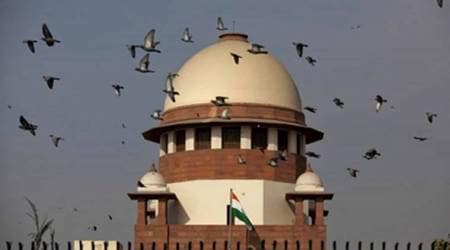 “An act which leads to a good death. Some positive act is necessary to characterise the action as Euthanasia. Euthanasia is also commonly called “assisted suicide”, the court defined euthanasia. Representational photo
“An act which leads to a good death. Some positive act is necessary to characterise the action as Euthanasia. Euthanasia is also commonly called “assisted suicide”, the court defined euthanasia. Representational photo
The Supreme Court on Friday delivered a landmark judgment allowing “living will” where, an adult in his conscious mind, is permitted to refuse medical treatment or voluntarily decide not to take medical treatment to embrace death in a natural way. In the 538-page judgment, the court laid down a set of guidelines for “living will” and defined passive euthanasia and euthanasia as well.
The Bench comprising Chief Justice of India Dipak Misra and Justice A M Khanwilkar defined euthanasia as, “An act which leads to a good death. Some positive act is necessary to characterise the action as Euthanasia. Euthanasia is also commonly called “assisted suicide”, said the court.
It defined passive euthanasia as, “a decision to withdraw life-saving treatment by a patient who is competent to take decision as well as with regard to a patient who is not competent to take decision can be termed as passive euthanasia, which is lawful and legally permissible in this country.”
The court also stated the rights of a patient would not fall out of the purview of Article 21 (right to life and liberty) of the Indian Constitution.
Further clarification was provided by the court for “incompetent patients” who are unable to take an informed decision, ““the best interests principle” be applied and such decision be taken by specified competent medical experts and be implemented after providing a cooling period to enable aggrieved person to approach the court of law.”
In case where an individual may not be in a position to specify his wishes, an advance medical directive can be pursued by the individual exercising his autonomy on the subject of the extent of medical intervention that he wishes to allow upon his own body at a future date. Defining advance medical directive, the bench said, “The purpose and object of advance medical directive is to express the choice of a person regarding medical treatment in an event when he loses the capacity to take a decision. The right to execute an advance medical directive is nothing but a step towards protection of aforesaid right by an individual.”
Right to execution of an advance medical directive by an individual would not depend on any recognition or legislation by a State and can be exercised by an individual recognising and affirming his right of bodily integrity and self-determination, the court has ruled.
On the subject of administration of a lethal drug, the court held that “no one is permitted to cause death of another
person including a physician by administering any lethal drug even if the objective is to relieve the patient from pain and suffering”.
The top court also reiterated from Gian Kaur’s case that the right to life does include right to live with human dignity which would mean, “the existence of such right up to the end of natural life, which also includes the right to a dignified life upto the point of death including a dignified procedure of death.”
For all the latest India News, download Indian Express App

























